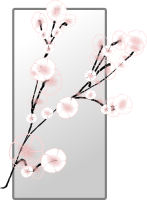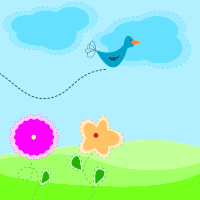Associations to the word «Springs»
Noun
- Shortstop
- Sunlight
- Favourite
- Simple
- Triple
- Pea
- Invite
- Musket
- Rigging
- Exclamation
- Bethesda
- Foot
- Noodle
- Serpent
- Easterly
- Odour
- Thirst
- Revolver
- Plank
- Uproar
- Wind
- Companionship
- Rubber
- Carriage
- Soil
- Bedding
- Enchantment
- Resort
- Clump
- Landing
- Worshipper
- Chestnut
- Amazement
- Prowess
- Affection
- Oasis
- Bolt
- Thebes
- Shriek
- Fielder
- Tint
- Cooler
- Throng
- Pitching
- Cry
- Freeze
- Cart
- Valour
- Keystone
- Carnival
- Steer
- Seed
- Offspring
- Roar
- Foam
- Gao
- Outfielder
- Viz
- Wei
- Adversary
- Lock
- Baseman
- Valley
- Larva
- Cactus
Adjective
Pictures for the word «Springs»
Wiktionary
SPRING, verb. To jump or leap.
SPRING, verb. To pass over by leaping.
SPRING, verb. To produce or disclose unexpectedly, especially of surprises, traps, etc.
SPRING, verb. (slang) To release or set free, especially from prison.
SPRING, verb. To come into being, often quickly or sharply.
SPRING, verb. To start or rise suddenly, as from a covert.
SPRING, verb. To cause to spring up; to start or rouse, as game; to cause to rise from the earth, or from a covert.
SPRING, verb. (nautical) To crack or split; to bend or strain so as to weaken.
SPRING, verb. To bend by force, as something stiff or strong; to force or put by bending, as a beam into its sockets, and allowing it to straighten when in place; often with in, out, etc.
SPRING, verb. To issue with speed and violence; to move with activity; to dart; to shoot.
SPRING, verb. To fly back.
SPRING, verb. (intransitive) To bend from a straight direction or plane surface; to become warped.
SPRING, verb. To shoot up, out, or forth; to come to the light; to begin to appear; to emerge, like a plant from its seed, a stream from its source, etc.; often followed by up, forth, or out.
SPRING, verb. To issue or proceed, as from a parent or ancestor; to result, as from a cause, motive, reason, or principle.
SPRING, verb. (obsolete) To grow; to prosper.
SPRING, verb. (architecture) (masonry) (transitive) To build (an arch).
SPRING, verb. (transitive) (archaic) To sound (a rattle, such as a watchman's rattle).
SPRING, noun. A leap; a bound; a jump.
SPRING, noun. (countable) Traditionally the first of the four seasons of the year in temperate regions, in which plants spring from the ground and trees come into blossom, following winter and preceding summer.
SPRING, noun. (countable) Meteorologically, the months of March, April and May in the northern hemisphere or September, October and November in the southern.
SPRING, noun. (countable) The astronomically delineated period from the moment of vernal equinox, approximately March 21 in the northern hemisphere to the moment of the summer solstice, approximately June 21. (See on Wikipedia.Wikipedia:Spring (season) for other variations.)
SPRING, noun. (countable) Spring tide; a tide of greater-than-average range, that is, around the first or third quarter of a lunar month, or around the times of the new or full moon.
SPRING, noun. (countable) A place where water emerges from the ground.
SPRING, noun. (uncountable) The property of a body of springing to its original form after being compressed, stretched, etc.
SPRING, noun. Elastic power or force.
SPRING, noun. (countable) A mechanical device made of flexible or coiled material that exerts force when it is bent, compressed or stretched.
SPRING, noun. (countable) (slang) An erection of the penis.
SPRING, noun. (countable) The source of an action or of a supply.
SPRING, noun. Any active power; that by which action, or motion, is produced or propagated; cause; origin; motive.
SPRING, noun. That which springs, or is originated, from a source.
SPRING, noun. A race; lineage.
SPRING, noun. A youth; a springald.
SPRING, noun. A shoot; a plant; a young tree; also, a grove of trees; woodland.
SPRING, noun. (obsolete) That which causes one to spring; specifically, a lively tune.
SPRING, noun. The time of growth and progress; early portion; first stage.
SPRING, noun. (countable) (nautical) A rope attaching the bow of a vessel to the stern-side of the jetty, or vice versa, to stop the vessel from surging.
SPRING, noun. (nautical) A line led from a vessel's quarter to her cable so that by tightening or slacking it she can be made to lie in any desired position; a line led diagonally from the bow or stern of a vessel to some point upon the wharf to which she is moored.
SPRING, noun. (nautical) A crack or fissure in a mast or yard, running obliquely or transversely.
SPRING, proper noun. Spring, the season of warmth and new vegetation following winter
SPRING A BUTT, verb. (nautical) To loosen the end of a plank in a ship's bottom.
SPRING A LEAK, verb. To begin to leak.
SPRING AND AUTUMN, adjective. Of, from, or related to a period of Chinese history during the first half of the Eastern Zhou dynasty, usually reckoned from its founding at Luoyang in 771 BC until the Partition of Jin in 403 BC, considered to have begun the Warring States period
SPRING AVENS, noun. Geum vernum, native to much of temperate eastern North America.
SPRING BACK, verb. To recoil
SPRING BALANCE, noun. A device for measuring weight or force by the elasticity of a spiral spring.
SPRING BEAM, noun. A beam that supports the side of a paddle box.
SPRING BEAUTIES, noun. Plural of spring beauty
SPRING BEAUTY, noun. Any of various species of flowering plant of the genus Claytonia, primarily native to the Americas and northeastern Asia.
SPRING BEAUTY, noun. A small American butterfly (genus Erora) which appears in spring. The hind wings of the male are brown, bordered with deep blue; those of the female are mostly blue.
SPRING BREAK, noun. A time of vacation from school that occurs during the spring.
SPRING BREAKER, noun. Someone on vacation during spring break
SPRING BREAKS, noun. Plural of spring break
SPRING CHICKEN, noun. A chicken for eating while it is still young.
SPRING CLEAN, noun. (countable) A systematic clean or clear out of something.
SPRING CLEANING, noun. A systematic cleaning of a residence at the end of winter
SPRING CLEANING, noun. (by extension) A systematic cleaning, reorganization, or weeding out of a system
SPRING CLEANS, noun. Plural of spring clean
SPRING CONSTANT, noun. (physics) A characteristic of a spring which is defined as the ratio of the force affecting the spring to the displacement caused by it.
SPRING EQUINOX, noun. Vernal equinox
SPRING EQUINOXES, noun. Plural of spring equinox
SPRING FESTIVAL, noun. Chinese New Year
SPRING FEVER, noun. (idiomatic) A feeling of invigoration and restlessness associated with the arrival of the warm weather and renewal of nature in the spring season.
SPRING FEVER, noun. (idiomatic) A feeling of laziness or listlessness associated with the arrival of the warm, comfortable weather of the spring season.
SPRING FOR, verb. (chiefly US) (idiomatic) To pay for; to offer money.
SPRING GREEN, noun. A fresh green colour, that reminds one of spring.
SPRING GREEN, adjective. Of a fresh green colour, that reminds one of spring.
SPRING GREENS, noun. (pluralonly) (chiefly British) the dark green leaves of the borecole plant, Brassica oleracea acephala, used as a vegetable; collard greens
SPRING GROWTH, noun. Luxuriant plant growth in spring
SPRING GUN, noun. A gun rigged to fire when a string is tripped
SPRING HOOK, noun. (locomotive engines) One of the hooks which fix the driving-wheel spring to the frame.
SPRING IN ONE'S STEP, noun. (idiomatic) enthusiasm, energy or a positive outlook or cheerful attitude.
SPRING LINE, noun. (nautical) A line stretched longways between a docked vessel and a cleat on the pier, or used during berthing to guide the vessel into its slip; a warp
SPRING LINES, noun. Plural of spring line
SPRING OF PORK, noun. (obsolete) The lower part of a forequarter of pork, which is divided from the neck, and has the leg and foot without the shoulder.
SPRING ONION, noun. A species of onion (Allium fistulosum) from Asia, with slender bulbs.
SPRING ONION, noun. Several similar types of onion.
SPRING ONIONS, noun. Plural of spring onion
SPRING OUT, verb. To break out; to escape.
SPRING OUT, verb. To emerge or arise.
SPRING OUT, verb. To spend the season of spring in outdoor pursuits such as camping.
SPRING OUT, verb. Used other than as an idiom: see spring, out.
SPRING PEEPER, noun. Pseudacris crucifer, a small chorus frog of North America.
SPRING PEEPERS, noun. Plural of spring peeper
SPRING PIN, noun. In locomotives, an iron rod fitted between the springs and the axle boxes, to sustain and regulate the pressure on the axles.
SPRING QUILLWORT, noun. A species of quillworts, Isoetes echinospora.
SPRING RIDER, noun. A children's playground item consisting of a large spring beneath a central beam or flange on which the rider sits.
SPRING RIDERS, noun. Plural of spring rider
SPRING ROCKER, noun. Spring rider.
SPRING ROCKERS, noun. Plural of spring rocker
SPRING ROLL, noun. A type of savoury food consisting of shredded vegetables wrapped in a pancake made from rice flour and then fried.
SPRING ROLL, noun. (US) An egg roll.
SPRING ROLLS, noun. Plural of spring roll
SPRING SALMON, noun. (Canada) A chinook salmon; especially an average-sized one (less than 13.5 kg).
SPRING SNOWFLAKE, noun. Leucojum vernum, a bulbous plant belonging to the Amaryllidaceae family.
SPRING STAY, noun. (nautical) A preventer stay, to assist the regular one.
SPRING STEEL, noun. A variety of steel, elastic, strong, and tough, rolled for making springs, etc.
SPRING THE LUFF, verb. (nautical) To ease the helm, and sail nearer to the wind than before; said of a vessel.
SPRING TIDE, noun. The tide which occurs when the moon is new or full; the effects of the Sun and moon being reinforced so that this tide is of maximum range.
SPRING TIDES, noun. Plural of spring tide
SPRING TO LIFE, verb. (idiomatic) To start to exist.
SPRING TO MIND, verb. (idiomatic) To appear suddenly in one's thoughts, often as an example of something.
SPRING TRAINING, noun. (baseball) A set of practices and exhibition games for each Major League Baseball team, preceding the start of the regular season, which are used by a manager to determine the roster for the regular season.
SPRING TRAINING, noun. (noun adjunct) (baseball) Of or pertaining to the set of practices and exhibition games preceding the start of the regular season.
SPRING UP, verb. (intransitive) To appear suddenly.
SPRING UP, verb. (intransitive) (figuratively) To come rapidly into existence.
SPRING WATER, noun. Alternative form of springwater
SPRING WHEAT, noun. A type of wheat that does not require vernalization and may thus be sown in spring for harvest in autumn or, if the climate allows, in the autumn for spring harvest.
Dictionary definition
SPRING, noun. The season of growth; "the emerging buds were a sure sign of spring"; "he will hold office until the spring of next year".
SPRING, noun. A metal elastic device that returns to its shape or position when pushed or pulled or pressed; "the spring was broken".
SPRING, noun. A natural flow of ground water.
SPRING, noun. A point at which water issues forth.
SPRING, noun. The elasticity of something that can be stretched and returns to its original length.
SPRING, noun. A light, self-propelled movement upwards or forwards.
SPRING, verb. Move forward by leaps and bounds; "The horse bounded across the meadow"; "The child leapt across the puddle"; "Can you jump over the fence?".
SPRING, verb. Develop into a distinctive entity; "our plans began to take shape".
SPRING, verb. Spring back; spring away from an impact; "The rubber ball bounced"; "These particles do not resile but they unite after they collide".
SPRING, verb. Develop suddenly; "The tire sprang a leak".
SPRING, verb. Produce or disclose suddenly or unexpectedly; "He sprang these news on me just as I was leaving".
Wise words
Pass no rash condemnation on other peoples words or actions.

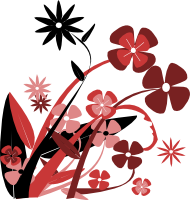

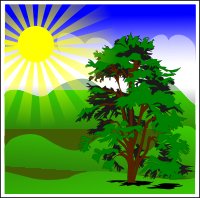

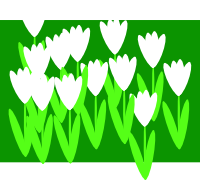

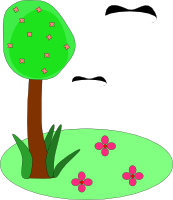


.png)
.png)
.png)
.png)



